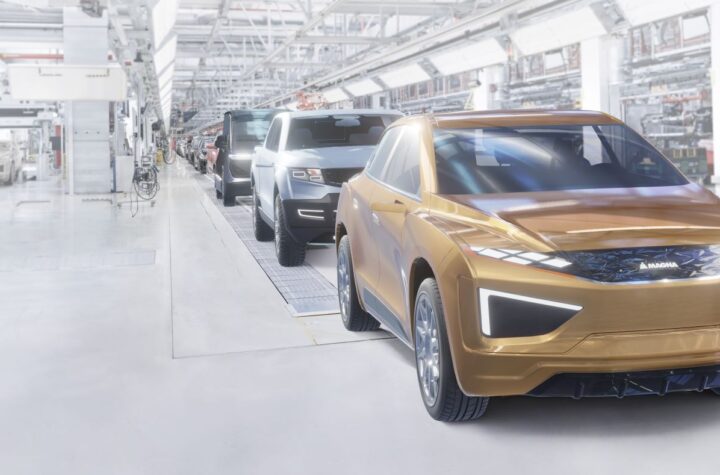
 The annual J.D. Power survey of initial vehicle quality got plenty of print as everyone tried to discern the probable impact on demand from a shift up or down in the well-publicized ratings. This year’s rankings continued the improving trend of domestic makes relative to some previously invincible vehicle manufacturers, including Mercedes and even Toyota. Buick, Mercury and Cadillac outranked both of these brands in initial quality. Whereas the U.S. auto companies once used catchy slogans such as “Quality is Job One” which conflicted with their actual performance, they can be justifiable proud of their improved standings. With higher quality comes consideration among consumers who might have dismissed a brand.
The annual J.D. Power survey of initial vehicle quality got plenty of print as everyone tried to discern the probable impact on demand from a shift up or down in the well-publicized ratings. This year’s rankings continued the improving trend of domestic makes relative to some previously invincible vehicle manufacturers, including Mercedes and even Toyota. Buick, Mercury and Cadillac outranked both of these brands in initial quality. Whereas the U.S. auto companies once used catchy slogans such as “Quality is Job One” which conflicted with their actual performance, they can be justifiable proud of their improved standings. With higher quality comes consideration among consumers who might have dismissed a brand.
But as important as the initial quality survey is, there are other measures that suggest the domestic manufacturers have a way to go before they match the best Japanese companies. And the real world suggests that any survey, quality or otherwise, is a narrow view of a complex marketplace and initial quality does not reflect the customer’s total ownership experience.
Warranty expenses on domestic brands, though gradually falling, are still substantially higher than among many Japanese brands. These costs reflect the long-term quality of vehicles rather than the customer’s experience in the first few months of ownership. Here the domestic manufacturers still trail their Japanese rivals. The good news, however, is that GM, Ford and Chrysler dealers are realizing that they won’t be able to rely on warranty work to fill their service bays and cover their fixed costs if the present quality trend continues.
Long term warranties covering key systems and components are increasingly an element in vehicle marketing. This is coinciding with the fact that car buyers are financing their purchases with four-and-five year loans instead of twoyear leases, making the long term warranty both important to the shopper and a greater liability for manufacturers. Unless automakers get the quality problems fixed so that engines and transmissions last 100,000 miles or more, they will suffer real financial consequences.
But no one should think that the quality survey alone changes a market. The buyer of the Hummer H2 is not going to forego the car because it ranked at the bottom in initial quality. That customer is more interested in the image and style of the vehicle and less concerned about its rattles or squeaks. But for Hummer to have an enduring position in the market, quality has to improve. Kia and Hyundai, though much better since the days when their defects exceeded the 200 mark for every 100 vehicles, have partly overcome the quality issue with longer warranties and clever styles. But for these brands to seriously challenge the Japanese, they have to match them in initial and long-term quality.
The fact that Mercury ranked above Porsche, Toyota and Mercedes in initial quality isn’t going to boost sales for a brand struggling to find an identity and place in the market. Apart from two SUVs, Mercury doesn’t offer buyers enough material for them to know what the brand stands for. Its quality rating is irrelevant if they can’t find a car they like.
On the other hand, Cadillac didn’t rebound just because of better quality. The brand ranked just behind Lexus in initial quality and is staging an impressive comeback. After decades of wandering in a badge-engineered backwater, Cadillacs are making a styling statement that appeals to more shoppers. Cadillac has gotten the entire formula right; high quality in combination with attractive models and clever advertising will produce higher sales, including conquest sales from foreign brands.
Surveys are great and the auto industry is rife with them. They measure everything from our satisfaction with the dealer who sold and serviced our cars to the dealer’s satisfaction with his franchise to the satisfaction of suppliers with each auto company. While there is value in each study and no one wants to rank at the bottom of any list, any set of data represents a small, albeit sometimes important, piece of a puzzle. Quality surveys are no exception, especially as the number of defects separating the best, average and the worst continues to compress.
Maryann Keller is a veteran auto industry analyst and author of the books “Rude Awakening: The Rise, Fall and Struggle to Recover at General Motors” and “Collision: GM, Toyota and Volkswagen and the Race to Own the 21st Century.”













More Stories
From Gasoline Powered Cars To Electric Vehicles | Electric Moped Bike A Best Alternative
Rubbernecking: A Silly Reason for Car Accidents
Flexible Magna Manufacturing Solutions: The Key to Success in the Automotive Industry